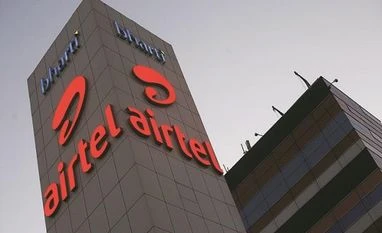Bharti Airtel to invest $1 billion in 4G gear from Ericsson, Nokia, Samsung
The contracts will address 300,000 new 4G base stations, with Ericsson, Nokia, and Samsung supplying about 50 per cent, 45 per cent, and 5 per cent of the equipment, respectively, over three years
)
Airtel’s stock has surged by over 80 per cent in the past year
Listen to This Article
Bharti Airtel, India’s second-largest telecom company, is reportedly planning to issue orders worth around $1 billion to Ericsson, Nokia, and Samsung for 4G network equipment over the next three years, according to a report by The Economic Times.
The new contracts are intended to accelerate the transition of Airtel’s feature phone users to smartphones and enhance revenue per user, the report said.
Additionally, the telecom giant, led by billionaire Sunil Mittal, is in discussions with global suppliers regarding the procurement of more 5G network equipment. However, the immediate focus remains on expanding its 4G network coverage across the country, the report said.
The report quoted a source as saying, “Ericsson, Nokia and Samsung will meet around 50 per cent, 45 per cent and 5 per cent of Airtel’s near-300,000 additional 4G base station requirements, respectively, over a three-year span.”
Letters of credit
The telecom giant, with a market capitalisation of Rs 9.46 trillion, is expected to pay the three vendors primarily through letters of credit. These letters of credit, typically provided by banks, will serve as a guarantee that Airtel’s future payments to the vendors will be made on time and for the agreed-upon amount.
Also Read
Airtel’s stock has surged by over 80 per cent in the past year, compared to a 23 per cent rise in the benchmark Sensex.
Base stations for 11 circles
The report quoted industry insiders as saying that Sweden’s Ericsson is likely to supply 4G base stations for 11 circles, including Rajasthan, Haryana, Delhi, Uttar Pradesh-West, Himachal Pradesh, Jammu and Kashmir, Assam, Northeast, Andhra Pradesh, Tamil Nadu, and Karnataka. Meanwhile, Finland’s Nokia may provide 4G base stations for nine circles — Mumbai, Gujarat, Madhya Pradesh, UP-East, Bihar, West Bengal, Odisha, Maharashtra, and Kerala — and South Korea’s Samsung for the remaining two, Kolkata and Punjab.
Boosting 4G for wider reach
Airtel’s decision to embark on another phase of 4G network expansion is aligned with its goal to strengthen mobile broadband coverage in five key circles — Gujarat, Maharashtra, Madhya Pradesh, Kerala, and West Bengal — where its 4G presence is currently limited.
Simultaneously, the telco aims to enhance 4G coverage in non-census towns and villages across India, as it works to swiftly transition its remaining 95 million 2G users to 4G, the report said.
More From This Section
Topics : Nokia Samsung Bharti Airtel 4G network 4G Ericsson BS Web Reports
Don't miss the most important news and views of the day. Get them on our Telegram channel
First Published: Sep 18 2024 | 10:12 AM IST

